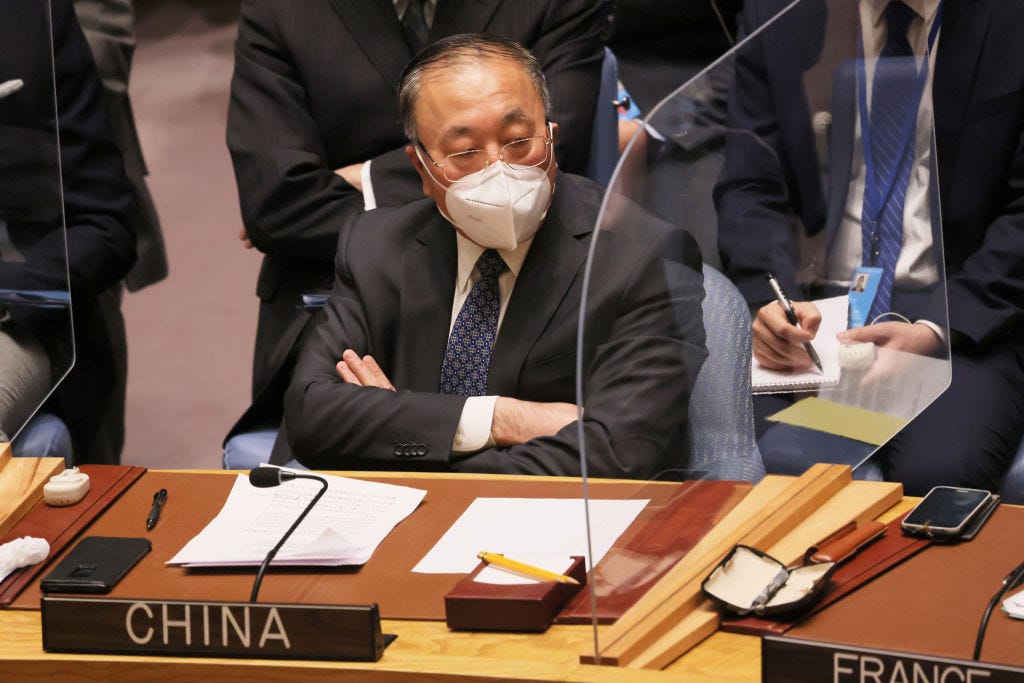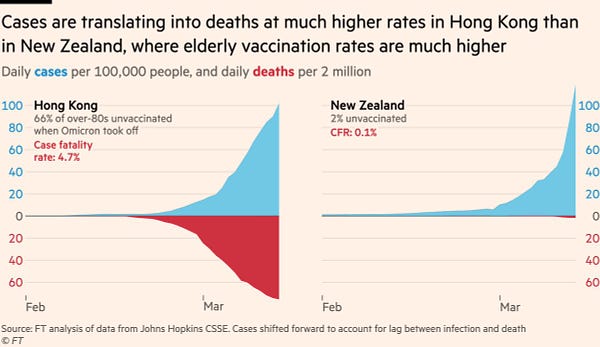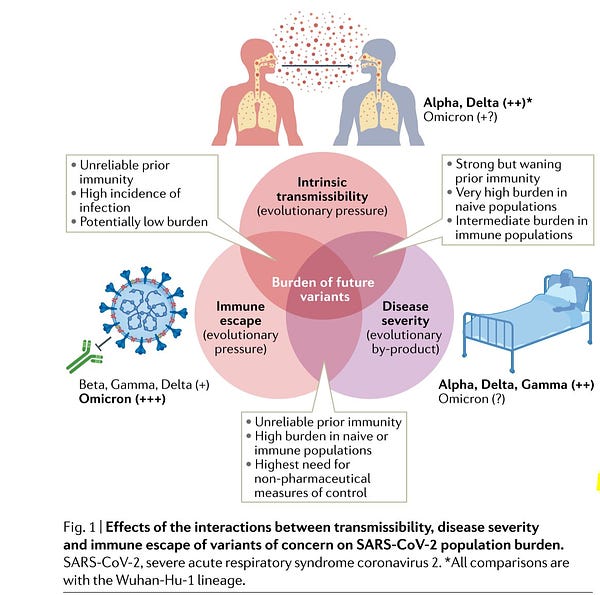TLDR & TLDL: Aotearoa-NZ Inc needs to urgently consider diversifying its export and import reliance away from China, which is threatening to join Russia on the other side of a new Iron Curtain.
Last night the United States leaked intelligence it believes shows China has already agreed to send military supplies to Russia to help its ‘no limits’ partner in Ukraine, including drones, missiles and ready-to-eat military ration packs. US officials threatened China with a response that is thought to include secondary sanctions, while China accused the United States of spreading misinformation and threatened its own retaliatory sanctions.
This dispute may be resolved if China steps back or proves the US intelligence wrong, but the risks are growing that China is lumped into the same camp as Russia in a world bifurcated between the autocratic east and the democratic west. I argue below the paywall fold and in the podcast above for paid subscribers why Aotearoa-NZ Inc must now openly, quickly and aggressively to shift its dependence on trade with China.

Elsewhere in the news today:
worries about depressing effects on global economic growth of covid lockdowns in China and talk of a nuclear deal to allow Iran to export more oil drove oil prices down more than six percent and under US$100/barrel last night;
Covid lockdowns in China’s manufacturing and shipping hubs of Guangdong and Shanghai has forced the closure of scores of factories this week, forcing logistics experts to worry about fresh global supply chain disruptions as big as the Evergreen’s blockage of the Suze Canal a year ago; (Reuters)
investors are the least confident they’ve been about economic growth since early 2020 as inflation and higher interest rates destroy consumer demand, even before the US Federal Reserve’s first rate hike expected tomorrow at 7am NZT; and,
Jacinda Ardern is expected to announce this morning that tourists from Australia and other visa-waiver countries such as Britain, the US and the EU will all be able to enter without having to go through MIQ or self-isolation from April 12, rather than initial plans for a July start. (Stuff, NZ Herald)
FYI for paid subscribers to suggest questions and lines of inquiry in the comments below, I’ll be at the Beehive news conference later this morning on the earlier border reopening. I’m also doing my Spinoff podcast ‘When the facts change’ for this week on whether this week’s petrol tax cuts was a big missed opportunity for engineering a faster and more just transition to carbon zero. I’d love you to subscribe to the free podcast here via Apple and Spotify.
A moment to choose ‘sides’ is much nearer
Aotearoa-NZ Inc again faces a massive strategic choice about our future as a trading nation and about the values we prioritise. Until now, we have been able to ‘have our cake’ of trading with China and been able to ‘eat it too’ by staying allied to our security partners Britain, Australia, Canada and the United States. We’ve done it with lots of fancy diplomatic and trade footwork, along with some artful ‘strategic ambiguity’ on issues such as Taiwan and Hong Kong.
It helped for a long time that our trading partners also saw their futures and China’s futures as allied in a pathway towards liberal economies and democracies. We enthusiastically joined with Bill Clinton and Paul Keating from the early 1990s in embracing Chinese trade and investment, and even got ourselves ahead of the curve with our 2008 Free Trade Agreement with China. It was the first such deal China did with a developed nation and came thanks to our championing of China’s entry into the World Trade Organisation and our recognition of China as a ‘market economy’.
Such giddy and innocent and hopeful times…
The times they are a changin’
It’s all different now, and it all seemed to change in an awful hurry.
But in truth, that confidence that China would truly open up began dying in the final years of the Barack Obama administration from 2012 to 2016 as it dawned on the west that President Xi Jinping was much more of an autocrat and isolationist than his predecessors. From 2014 onwards, business and political leaders could also see and feel that China’s Communist Party was more interested in building its own technological, economic and military strength than truly opening itself up to western ideals on trade, the rule of law, investment and democracy. Many began to feel used by China, and that China had been ‘taking the piss,’ but persisted in trading with the world’s second-largest economy to at least to keep the doors open and profit from the supply chains and inherent value-creating benefits of trade.
Now even those open doors and supply chains are in danger.
That era of openness and engagement since end of the first Cold War in 1991 was coming to an end anyway, but the events of the last three weeks are threatening to put it out of its misery completely. In years to come, I suspect we’ll look back on this era of globalisation from 1991 to 2022 as a second period of globalisation ended by a European war, just as the first era in the late 1800s was ended by the First World War.
Trust in central bank reserves shattered
The shockingly deep and fast excision of Russia from the global economy after its invasion of Ukraine and China’s profoundly unsettling decisions (so far) to stand beside Russia have shaken the faith in globalisation to its core. The era of true globalisation and deep engagement between the democratic west and China’s version of capitalism with communist Chinese characteristics had been grinding and stuttering to a halt anyway, but the extraordinary use of economic sanctions as a weapon of war and the decision to freeze Russia’s foreign currency reserves is threatening to stop the process of globalisation in its tracks and reverse it.
This is a moment for us akin to the moment in July 1961 when Britain, humbled in the wake of the Suez Crisis of 1956 and realising two world wars had wrecked its dominance of the global economy, started the process to join the European Union and dump its preferential treatment of the ‘Dominions’ exports. See more on that here in a piece I did for RNZ and Newsroom in 2019 during the Brexit mess.
After an initial period of shock, New Zealand’s political and diplomatic elite mapped out a long-term strategy to, firstly, salvage as much access to Europe as possible, and then, secondly, to seek new markets and deals, especially through the multilateral GATT and WTO systems. Amazingly, it worked.
Ugly choices, potentially quite soon
Up until then, our cultural, political, military and historical roots had allied with our trade roots so our decisions to enter World Wars One and Two on the same sides as Britain, Australia and the United States weren’t even decisions. They were more like reflexes than decisions.
But what would we do now if:
China went to war with Australia and the United States over Taiwan?
if Australia, the UK, Canada and United States chose to use Russian-style sanctions to stop China’s oppression of the Uighur peoples in Xinxiang, or to stop China’s oppression of local democracy activists in Hong Kong?
if Australia, the UK, Canada and the United States launched sanctions to stop China sending lethal weapons to Russia in Ukraine?
That last poser is now far from hypothetical. We could be in that position within weeks after the ominous early signs emerged last night that President Xi Jinping has chosen to send weapons to help Russia destroy Ukraine.
US and Chinese officials met for seven hours of tense talks in Rome yesterday. They emerged and immediately started making accusations and threats in public. The United States had even ‘warmed up’ the meeting by saying it had intelligence that Russia had asked China for equipment and rations to help it in Ukraine.
Here’s the FT’s Demetri Sevastopulo in Washington early yesterday on what the United States was telling its allies:
“Two officials familiar with the content of the cables said Washington had told allies that Russia had asked China for five types of equipment, including the surface-to-air missiles. The other categories were drones, intelligence-related equipment, armoured vehicles, and vehicles used for logistics and support. The cables, which were sent by the US state department to allies in Europe and Asia, were not specific about the level or timing of any assistance that may be provided to Moscow by Beijing.” FT-$$$
The report led to a savage sell-off in China’s stock market. The detail was particularly concerning.
“Eric Sayers, an Asia security expert at the American Enterprise Institute, said the list of equipment requested by Russia was “shocking” and “speaks to Moscow’s desperation”. “If Beijing transfer anything on the list, I would expect a strong bipartisan push for sanctions and export controls focused on [China’s People’s Liberation Army], but that would only be the start,” Sayers added.
“Evan Medeiros, a China expert at Georgetown University and former top White House Asia adviser, said it would be “deeply worrisome” if China transferred weapons to Russia. “It would be a game-changer for global geopolitics,” Medeiros added. “We risk going back to the days of the Sino-Soviet alliance of the 1950s. Ukraine may become the first proxy conflict in a new cold war.” FT-$$$
China accused the United States of spreading misinformation after the report and repeated its allegation that the United States had pushed Russia into its ‘special military operation’.
During the meeting, State Department spokesperson Ned Price warned China that the United States would not tolerate China helping Russia.
“We have communicated very clearly to Beijing that . . . we will not allow any country to compensate Russia for its losses,” said Ned Price, state department spokesperson.
Earlier Price had been even more specific.
“We are watching very closely to the extent to which the [People’s Republic of China] or any country in the world provides support, material, economic, financial, rhetorical or otherwise, to this war of choice that President [Vladimir] Putin is waging.
“We have been very clear, both privately with Beijing, publicly with Beijing, that there would be consequences for any such support.” Ned Price
China hit straight back, threatening its own actions if the United States was to sanction China. The decision to freeze the Russian central bank’s foreign reserves in US dollars, euros and yen has been described by Vladimir Putin as an economic act of war, which he said had forced him to put Russia’s nuclear forces on high alert.
The freezing of central bank assets could in theory be used on China, completely destroying its ability to manage its currency or to manage payments and investment flows between China and the rest of the world. It has completely upended any security China may have felt in having built up US$3.2t worth of foreign reserves, much of which is held as US Treasuries.
China’s Foreign Minister Wang Yi told Spain’s foreign minister in remarks put out by China’s Foreign Ministry that China would defend itself.
“China is not a party to the crisis, nor does it want sanctions to affect China. China has a right to safeguard its legitimate rights and interests.” Wang Yi
Scoops and news of note
This is good to see. Climate activist coalition All Aboard, which includes Lawyers for Climate Action, have applied to the High Court to declare the Auckland Council’s Regional Long Term Plan illegal because it doesn’t get anywhere near achieving the 64% reduction in emissions by 2030, which the Council has also agreed to. Todd Niall has the details via Stuff yesterday.
Threads of the day





Chart of the day


Useful longer reads and listens
Max Rashbrooke does a great job of explaining why recent statistics seem to show no increase in wealth inequality. (RNZ)
“The high-level wealth inequality figures also conceal some disturbing trends. The wealthiest 1 percent's share has been unaffected by rampant house price inflation because housing is not, relatively speaking, very important to people who own such valuable businesses, shares and other financial investments.
What that inflation has done is lift the (apparent) wealth of the next set down, the property-owning middle classes - and thus widen the already alarming gulf between them and the property-less families immediately below. This is, of course, due partly to the government's 'easy money' policy of making borrowing incredibly cheap during the pandemic.” Max Rashbrooke via RNZ
Gideon Rachman has done a sensational job in this FT-$$$ piece framing China’s position in the Ukraine war.
“China is now having to digest the news that, as a result of western sanctions, Russia has lost access to most of its foreign reserves. As the economist Barry Eichengreen points out, one of the main reasons that countries hold foreign reserves is “as a war chest to be tapped in a geopolitical conflict”. But China, which has the world’s largest foreign reserves, has just discovered that it could lose access to its war chest overnight.
“China is not nearly self-sufficient in either energy or food. It has worried for decades about the “Malacca Dilemma” — the threat that the US navy could blockade China by cutting off key shipping routes. China’s huge investments in its navy are partly aimed at averting that possibility. Now, however, Beijing has to consider the possibility that a freezing of the country’s foreign reserves, allied to other financial sanctions, could be just as threatening as a naval blockade.” Gideon Rachman via the FT-$$$
Fintan O’Toole is in magisterial form in this New York Review of Books review of a biography about Angela Merkel. HT Donald Lawrie in yesterday’s Dawn Chorus comments.
‘Merkel always knew that Germany, above all, must not be great. She visibly winced in 2011 when, during the eurozone debt crisis, the leader of her party’s parliamentary bloc, Volker Kauder, boasted, “Now, all of a sudden, Europe is speaking German.” Merkel’s desire was to make Germany not great, but ordinary. Her relentless personal modesty—she continued as chancellor to live in an unpretentious flat in a pre-war building in east Berlin and to push her shopping cart around the local supermarket—was her intimate and miniature version of how she thought her country should be.’ Fintan O’Toole via New York Review of Books
My reading on Substack today
Spookies, profundities, curiosities and feel-goods


The Craic
Ka kite ano
Bernard


















Share this post